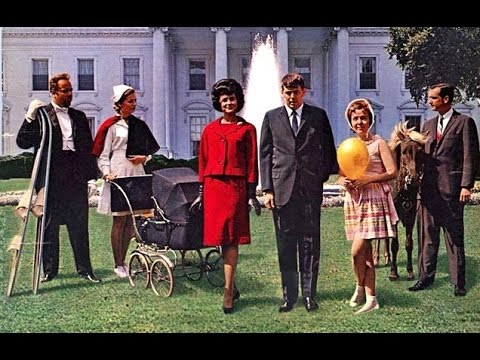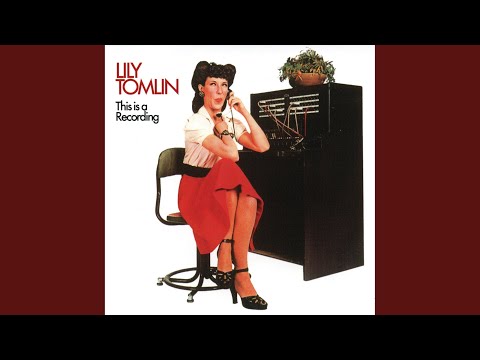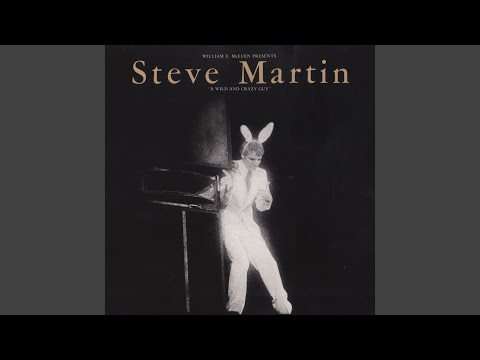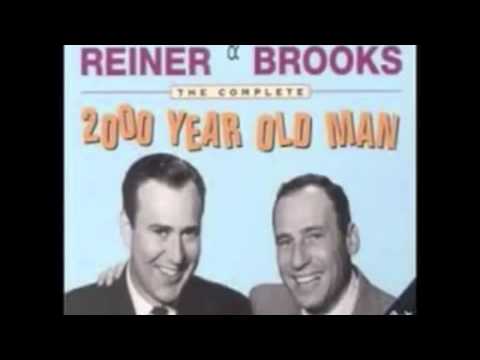What other comic records make the cut? In chronological order, here are the funny 13 — all from the 1960s and 1970s. C’mon, National Recording Registry, let’s get more modern comedy on the list! (Tomlin was added alongside Green Day and the Notorious B.I.G., so it’s possible.)
Tom Lehrer, Songs by Tom Lehrer (1953)
Lehrer paid 15 bucks in 1953 to self-record Songs by Tom Lehrer, selling the resulting 400 copies on campus for $3 each. Not a bad profit margin for an undergrad! The album caught on entirely by word of mouth, with Lehrer eventually pressing more copies and selling them via mail order.
Mort Sahl, At Sunset (1958)
Only old-school comedy nerds still talk about Sahl, but he was an innovator, forsaking setup/punchline joke structures for satirical, improvised musings on the day’s events. By rifling though a newspaper, Sahl made up new material for every show. He’s the first comic ever to win a Grammy.
Carl Reiner and Mel Brooks, 2000 Years With Carl Reiner and Mel Brooks (1960)
Reiner and Brooks’s 2,000-Year-Old Man routine is timeless, but the two old buddies from the Your Show of Shows writers’ room could improvise comic mayhem from just about any premise. On other tracks, check out Reiner playing the straight-man interviewer to Brooks as an astronaut, a coffeehouse beatnik and an Elvis-style crooner named Fabiola.
Bob Newhart, The Button-Down Mind of Bob Newhart (1960)
Newhart came out of nowhere to take home all the Grammys in the early 1960s. Button-Down Mind pours the foundation for the comic persona that would drive The Bob Newhart Show and Newhart in the 1970s and 1980s. When Mrs. Maisel’s husband decided to rip off a comedy routine to perform on stage, this album was the one he pilfered.
Stan Freberg, Stan Freberg Presents the United States of America (1961)
Want to hear what woke sounded like in 1961? Freberg’s take on American history is slyly progressive, with suggestions to political candidates to “Take An Indian to Lunch” — but only during election season. Freberg also gives satirical kicks in the pants to McCarthyism and the idea that Columbus discovered America. The jokes hold up!
Vaughn Meader, The First Family (1962)

Of all the recordings on this list, First Family is the first I’d file under “You had to be there.” Meader’s ultra-topical takedown of all things John F. Kennedy might not make much sense to post-Boomers, but it was a downright sensation in the early 1960s, selling more than 7.5 million copies. For comparison, 1963’s hit-filled With the Beatles sold 1.1 million.
Bill Cosby, I Started Out as a Child (1964)
Here’s where we break out the “Can you separate the art from the artist?” arguments. Okay by me if you skip this one but for all his heinous, hypocritical crimes, Cosby dominated the world of recorded comedy for a good decade or more.
Firesign Theatre, Don’t Crush That Dwarf, Hand Me the Pliers (1970)
The only comedy group in this bunch and also a candidate for the most “Who was this again?” entry. But Firesign Theatre is worth checking out. The New Rolling Stone Record Guide crowned Don’t Crush that Dwarf as “the greatest comedy album ever made.” As for the Library of Congress? It dubbed Firesign Theatre “the Beatles of comedy.”
Lily Tomlin, This Is a Recording (1971)

Welcome to the club, Lily — she’s the first woman to have a comedy recording in the national registry. (Really, Library of Congress?) It’s an unusual choice, as Tomlin records every track as her famous Laugh-In character, Ernestine the telephone operator.
George Carlin, Class Clown (1972)
They may have been the seven words you can’t say on television (or in Milwaukee), but in 1972, Carlin could record them for posterity. For my money, this is Carlin’s best album, his most potent combination of provocative social commentary, nostalgic storytelling and downright silliness.
Groucho Marx, An Evening With Groucho (1972)
There are better ways to enjoy Groucho’s comedy — just about any Marx Brothers movie, for example — but his exceptional verbal wit makes for great listening. You know a guy is an all-timer when his waggly-eyebrows-glasses-and-mustache persona is the go-to graphic to represent comedy.
Richard Pryor, Wanted (1978)
This double album was Pryor’s fourth to chart on the Billboard 200 and a good representation of his stand-up on vinyl. So far, Pryor is the only comedian to receive the Recording Academy’s lifetime achievement award.
Steve Martin, A Wild and Crazy Guy (1978)

Martin’s Let’s Get Small is a better, more inventive comedy album, but there’s no question that A Wild and Crazy Guy captures him at the peak of his comic-as-rock-star fame. It includes King Tut, a novelty song that hit the Top 20 on the Billboard singles chart.

